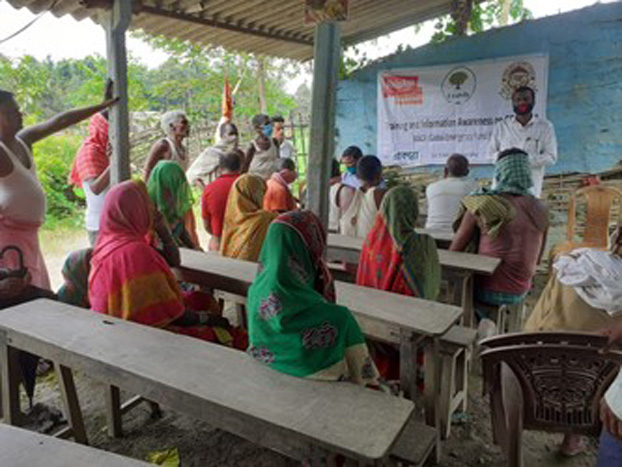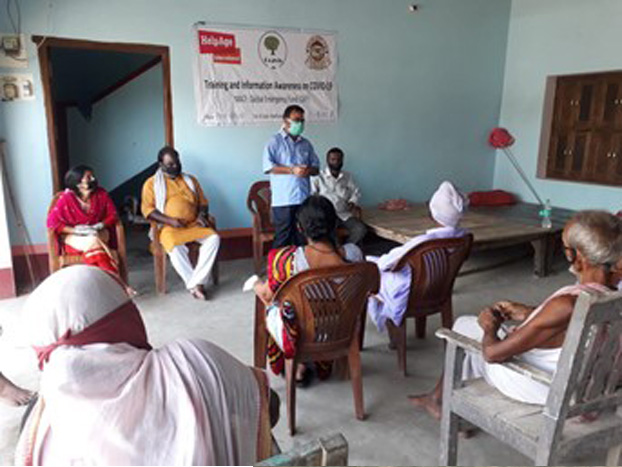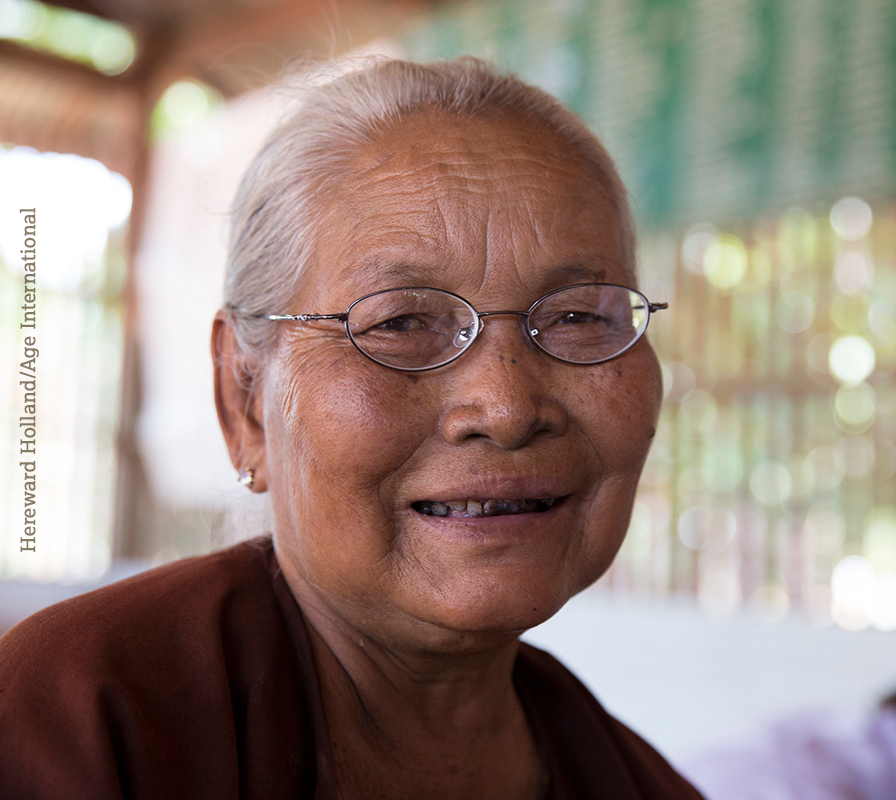Older people are disproportionately affected by disasters due to their physical, social, economic and cultural conditions and are often among the most vulnerable persons during emergencies. The situation is particularly challenging in low- and middle-income countries, where governments have less capacity to respond and greater emphasis is put on community and local level responses.
The ‘Timely and inclusive emergency response’ – so-called TIER project – provides the opportunity for HelpAge and its network members to prevent damage and loss to older people, their families, resources, and capital. Its approach is to ensure that natural disasters preparedness is institutionalised and inclusive of older people, as well as enable timely and effective responses. This will be achieved in three ways:
- Establishing a Global Emergency Fund (GEF) that will enable HelpAge to respond immediately to impending and immediate disaster situations
- Building an evidence base for better recognition and coverage of older people and their families in disaster risk reduction (DRR) and humanitarian responses
- Strengthening the capacity of Asia-Pacific regional network members on humanitarian preparedness and response.
Since January 2020, the TIER project has allocated emergency funds to support low-profile and low-visibility emergencies with timely humanitarian response. Our focus is on rapid, effective, and inclusive responses to the humanitarian crisis.
As of September 2020, HelpAge has supported 10 humanitarian responses in Indonesia, the Philippines, Zimbabwe, India, Pakistan, Bangladesh, Yemen, South Sudan and Uganda. A total of 30,198 people, including 5,047 older people and 534 people with disabilities were supported under the GEF grant through cash transfer, hygiene kit, outreach health, non-food items, protection, and WASH activities.
Taal volcano eruption in Batangas, the Philippines
The Coalition of Services of the Elderly conducted a rapid need assessment and provided cash transfer to support the community affected by the volcano eruption and ashfall.
Flood in Bihar, India
Implemented by GRAVIS, the GEF was allocated to help people in Bihar, India. The response included provision of water filter, hygiene kits and cash transfer. Affected people had receive free medical services and patients were treated.
HelpAge has worked on evidence building on the need for an age-inclusive approach and how older people and their families benefit through older people specific humanitarian interventions. Building on previous data and evidence, we will conduct a study to provide information on the collection and use of sex, age and disability disaggregated data (SADDD) as well as generational analyses of SADDD through a simple toolkit. In the case that SADDD is not available, how big data set could be used to supplement the assessments.
The TIER project has been instrumental in supporting engagement with partners on a regular basis and in strengthening their capacity to be able to respond to emergencies effectively.
This two-year project is running to December 2021. We expect to implement at least 20 humanitarian response programmes globally to reduce the vulnerability and increase the capacity of vulnerable people and communities, especially for older people and their families, affected/or predicted to be affected by a humanitarian crisis. There are 16 virtual trainings planned to enhance the capacity of partners. In addition to capacity mapping and scenario-based plans, a roster of humanitarians for swift response in at least 6 priority countries (Nepal, Bangladesh, India, Indonesia, the Philippines, and Pakistan) will be established. This will not only support HelpAge TIER project responses but also will help partners in responding to other future emergencies, with or without HelpAge support.
The project is financially supported by the Margaret A Cargill Philanthropies (MACP).
For more information about this project, please contact:
- Bikash Manna, Emergency Response Manager at bikash@helpageasia.org
- Deepak Malik, Regional Programme Manager (DRR and Humanitarian Response) at deepak@helpageasia.org
















